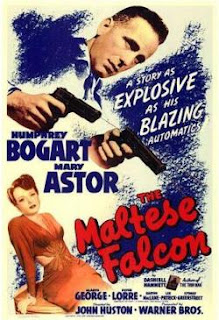 The typical buddy road picture ... on acid (literally). This movie, like "The Graduate" which also came out in 1967, did a lot to create the culture it depicted. In the case of "Easy Rider," it is a culture of hippies, psychotropic drug use, and pot-induced discussions around a campfire.
The typical buddy road picture ... on acid (literally). This movie, like "The Graduate" which also came out in 1967, did a lot to create the culture it depicted. In the case of "Easy Rider," it is a culture of hippies, psychotropic drug use, and pot-induced discussions around a campfire.Peter Fonda plays Wyatt, better known as "Captain America" because of his flag-adorned motorcycle and clothing. His buddy, played brilliantly by a long-haired Dennis Hopper (who died on May 29, 2010), is Billy. Together they travel on their bikes from Los Angeles to New Orleans for Mardi Gras, which ends up being the most important trip they took their entire lives.
Along the way, they meet a cast of interesting characters. Most captivating is a young Jack Nicholson, who earned an Oscar nomination for portraying the booze-dipped Southern lawyer George Hanson.
The tagline for the movie, as you can see on the poster, is "A man went looking for America. And couldn't find it anywhere." This is the true heart of the film: through all of its weird scene-cuts, its extended LSD-trip scene in a cemetery, and its depiction of Middle America as ignorant and bumbling, only one thing remains central -- America has lost the freedom its forefathers died to protect.
While I don't believe, as George Hanson does, that UFOs have dropped off aliens who look and act just like the rest of us and have become regular members of society since being brought here, I do agree that most people (especially in 1969) were not acting like their real selves. While I obviously do not identify with the long-haired hippies that are the film's main characters, I can sympathize their feelings of ostracism when they eat at the diner in Texas (?) and everyone has their judgmental eyes on their foreheads.
The movie was daring for its time, in more ways than one. Referenced earlier were the weird scene-cuts and the extended LSD trip. For some reason (I'm sure he had one), the director -- who happens to be Dennis Hopper, in his directorial debut -- chose to end each scene with a flash to the next scene, then coming back to the first scene, then going back to the second, then back to the first, then finally resting on the second scene and continuing the story. It was unsettling, weird, and confusing -- perhaps this was the exact intention of the technique. But weirdest of all things found in the film is the five-minute LSD trip found near the end of the film. There are no words for the bizarreness of this scene, so I'm not even going to try. Just watch (I couldn't find the English version, but you can get the gist from this).
The movie was short, yet had a large amount of sequences that consisted nothing more than the duo driving through America and showing us the scenery. Because of this, the movie feels almost like a documentary. But the ending jars us back into reality: this is fiction, dramatic and overblown, but real nonetheless.








.jpg)






















